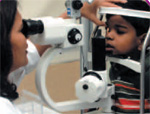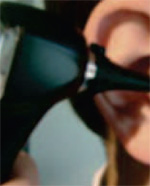Welcoming a newborn into your life is a moment of pure joy but can be equally overwhelming, especially for first-time parents. Ensuring that your baby is comfortable, safe, and well-cared for is key to navigating the early months. Here, we provide essential tips to make newborn care manageable and rewarding, giving you confidence in caring for your precious little one.
Table of Contents
Feeding Your Newborn
Newborns typically feed every 2-3 hours, whether through breastfeeding or formula. If you’re breastfeeding, aim for 8-12 feedings daily and make sure your baby latches correctly to avoid discomfort and promote effective feeding. For formula feeding, follow the preparation instructions closely and always sterilize bottles and nipples to maintain hygiene. Proper feeding supports healthy growth, strengthens your baby’s immune system, and helps establish a strong bond between you and your baby.
Diapering Essentials
Diapering is a constant part of caring for a newborn. Whether you choose disposable or cloth diapers, expect to change them every 2-3 hours or whenever they’re soiled. Keep diapering supplies, including wipes and diaper cream, within reach to make changes smoother. Clean your baby’s diaper area thoroughly and apply a gentle rash cream if necessary to reduce the risk of diaper rashes, and prevent skin infections.
Bathing Basics
Bathing your newborn can be a gentle bonding experience, but it’s important to ensure safety and comfort. Sponge baths are advised until the umbilical cord stump falls off. Use lukewarm water and mild, fragrance-free baby soap, and always support your baby’s head and neck while bathing. Pat your baby dry with a soft towel after bath.
Ensuring Safe Sleep
Safe sleep is essential to reduce the risk of Sudden Infant Death Syndrome (SIDS). Always place your baby on their back on a firm mattress in a crib or bassinet with a fitted sheet. Keep the crib free from loose bedding, toys, and pillows, and avoid co-sleeping. Aim for a comfortable room temperature and dress your baby in light layers. A safe sleep environment promotes better rest for your baby and peace of mind for you.
Bonding and Soothing Techniques
Bonding with your newborn is vital for their emotional and psychological well-being. Spend quality time holding, cuddling, and talking to your baby to strengthen your connection. Soothing techniques like swaddling, gentle rocking, or playing soft white noise can help calm a fussy baby. These activities not only comfort your baby but also help build a sense of security and trust, which are foundational for their emotional growth.
Monitoring Health and Wellness
Regular check-ups with your pediatrician are crucial in the first few months. Keep an eye on your baby’s weight, feeding patterns, and behavior changes. Be alert for signs such as fever, unusual fussiness, difficulty feeding, or changes in stool patterns, as these may indicate health concerns. Monitoring your baby’s wellness helps detect any potential issues early, ensuring they receive the care they need to thrive.
Umbilical Cord Care
Until the umbilical cord stump falls off, keep the area clean and dry to prevent infections. Avoid covering the stump with the diaper and gently clean the area with a damp cloth if necessary. If you notice redness, swelling, or discharge, consult your pediatrician promptly.
Dressing Your Newborn
Choose soft, breathable fabrics like cotton to dress your baby, avoiding tight or restrictive clothing. Layering is an effective way to keep your baby comfortable and allows for easy adjustments to temperature changes. Use hats and socks to keep them warm, especially in cooler environments. Dressing your newborn comfortably ensures they stay cozy without overheating, supporting restful sleep and contentment.
Handling and Holding
Newborns require gentle handling, and it’s essential to support their head and neck at all times. Hold your baby close to your chest for comfort and security, and avoid shaking or rough handling. Practice different holds, such as the cradle or football hold, to find what works best for both of you. Proper handling strengthens your bond with your baby and ensures their safety.
Establishing a Routine
While newborns may not adhere to a strict schedule, establishing a flexible routine for feeding, sleep, and playtime can be beneficial for both baby and parents. Observe your baby’s natural rhythms and try to create a calming bedtime routine, like a gentle bath or lullaby, to signal sleep. A routine helps you manage daily tasks and gives your baby a sense of structure, which is comforting as they grow.
Caring for a newborn can feel challenging at times, but with the right knowledge and preparation, you’ll grow more confident. Remember to seek support from family, friends, and healthcare professionals if you need assistance. By following these practical tips, you’ll be well-equipped to provide your newborn with the love, care, and attention they need, making the journey of parenthood a truly rewarding experience.
Newborn Care at Kokilaben Dhirubhai Ambani Hospital
Our Center for Children is committed to guiding you at every step of newborn care with our team of paediatricians, neonatologists and lactation consultants. Additionally, we also provide specialized care for critically ill children and newborns with dedicated Pediatric (PICU) and Neonatal Intensive Care Units (NICU). Equipped with advanced technology like High-Frequency Jet Ventilation (HFJV) for complex lung issues and Neonatal Transport Incubator, we ensure safe transfers and superior care for our youngest patients. Please visit our website for more details: https://www.kokilabenhospital.com/departments/centresofexcellence/centrefor_children.html





